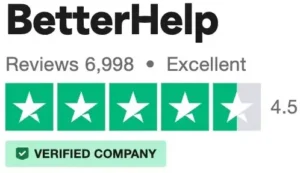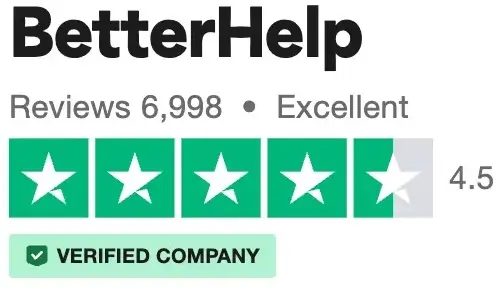Updated: 03/20/2024
Have you had to deal with a toxic member of your family member who consistently dismisses your recollection or experience of events? This is known as “gaslighting” — something that emotionally abusive people use in order to avoid accountability, rewrite history and cause you to always second-guess yourself. Unfortunately, gaslighting in dysfunctional families is quite common.

Short on time? Discover effective online therapy at your fingertips. Get started now with BetterHelp and receive 20% off. Click here to begin your journey towards a healthier mind.
Gaslighting In Dysfunctional Families Starts Small
Gaslighting usually begins with a minor twisting of facts. These distortions will gradually make you question your reality and give in to the false reality you were made to believe.
For instance, your favorite childhood movie was Frozen. Then your sister insists that you are wrong. You do not like Frozen. The real movie you liked as a child was Tangled.
Although you are certain that you love Frozen because you were a great fan of Anna, you will start thinking twice. It will give you thoughts that perhaps your sister was correct. Maybe you just mistook Rapunzel for Anna.
The situation above is a hypothetical scenario. In real life, a person will not make things up just for the sake of it. It is usually done with an ulterior motive.
Gaslighters seek to alter the past to suit their interest.
For example, your egoistic father takes pride in being a wonderful, loving, and selfless parent. This so-called trait of his is an important aspect of his public image. However, you recall your upbringing in a different light. Thus, if you bring up happenings that do not conform to his narratives, like instances of neglect and mistreatment, he will claim it has never occurred. He then adds that perhaps that was just your imagination because you were highly creative growing up.
Because you were just a child at the time it happened, you may be easily convinced that you just recalled it incorrectly.
And that is where doubts will start.
The deception eventually gets deeper. It gets so big to the point you get confused even with the most obvious things. You will lose your sense of reality and find it hard to believe in yourself anymore.
How To Know When You’re Being Gaslighted?
Most of the time when you are being emotionally abused, it can take a long time for you to realize it. The same is true when you are being gaslighted. Even when you start to realize it, you will still have self-doubt and you’ll be questioning your own sanity! This is what makes gaslighting so dangerous.
I’m here to inform you and make you understand that you’re not crazy. You are not making things up. And you are not acting like a child.
Feel Alone or Overwhelmed?
Connect with Licensed Therapists Anytime, Anywhere.
Experience Relief by Sharing with a Professional Listener.
Act now – Start your journey with BetterHelp and receive 20% off of your first month.
 .
.What Gaslighting in Dysfunctional Families Sounds Like
Gaslighters usually say stuff that will instill doubts and make you question if you can trust yourself. The following are the usual phrases used by gaslighters.
- You must be out of your mind.
- You are being overly dramatic.
- It was just a joke.
- You are overstating things.
- That was not my intention.
- You are imagining things.
- That was never the case.
- You take everything so seriously.
- You get offended so easily.
- It is not that serious.
- I just did it to . . . (subtly blaming you for the things they did to you)
- You told me . . . (making things up to confuse you)
- Everybody agrees that . . . (making it appear that you are wrong and everyone is on their side)
Who Is the Gaslighter In Your Dysfunctional Family?
The gaslighter can be anybody, including your sibling, grandparent, parent (gaslighting quite often done by female narcissists), or even one of your children. Or, perhaps it’s a friend or other person that is close to you.
In my experience, I have found gaslighting in dysfunctional families to be especially rampant, in particular in those where one or both of the parents have characteristics of a narcissistic personality disorder.
This often results in one child (referred to as the “scapegoat”) will typically be the target of emotional abuse, including gaslighting. On the other hand, one of the other children (referred to as the “golden child”) is then spoiled and praised and sort of put on a pedestal.
Sometimes, even the “golden child” will be a victim of gaslighting. This child, however, will be less likely to confront the parent and more likely to go with their story.
At the same time, the “scapegoat” will confront the parent and try to restore the truth. Sadly, those attempts to make the gaslighting parent take accountability will be fruitless.
How to Handle Gaslighting in Dysfunctional Families
Handling a gaslighter is not an easy feat. There is no exact method to solve this problem.
A gaslighter, by nature, is a person who tries to make you think you are insane.
They will do ridiculous things to confuse you and make you question your memories, choices, and sanity. You would not even realize what is happening.
Now, how can you defend yourself from this kind of strong assault against you?
Below are 7 methods to avoid being gaslighted.
1. Believe in your own account of reality.
No matter how many times a gaslighter will try to confuse you, you should firmly believe in yourself.
Trust your senses and have confidence in your memory. This way, it will be hard for a gaslighter to penetrate your mind.
However, our perceptions of reality are largely subjective, influenced by our past experiences, emotions, and belief systems. So, how can you be certain that your perception of reality is correct?
Where can we find the middle ground between trusting ourselves and acknowledging the fact that we might be wrong?
Gaslighting in dysfunctional families is often territorial. You have no reason to trust someone if they already have a history of being a self-centered pathological liar. You, on the other hand, have every reason to believe in yourself.
This is a challenging process that takes time. It may even take years for some. You should give yourself time because healing does not happen overnight.
2. Write it down.
Writing has long been proven to help in coping with problems and that definitely includes being gaslighted.
Aside from documenting the experience, writing also helps you understand it more. It assists you in bringing order to a chaotic situation to get away from toxic individuals who thrive on disorder.
It will also give you more self-assurance and enable you to stay grounded in your own version of reality. The gaslighter has no influence on you when you’re grounded.
Talking to someone who understands your situation can ease your burden. Speaking with a qualified, online counselor is an excellent option.
Emotional support can greatly help your mental health. It could be anyone whom you trust and feel at ease with. They will help you feel valued and in control.
It may also be beneficial to gain a different viewpoint on the matter. They might be able to help you see things from a different perspective and provide you with helpful insights.
Feel Alone or Overwhelmed?
Connect with Licensed Therapists Anytime, Anywhere.
Experience Relief by Sharing with a Professional Listener.
Act now – Start your journey with BetterHelp and receive 20% off of your first month.
 .
.However, even if this is very helpful, you should not make this a habit because you might develop a constant need for validation from others.
Trusting yourself is the one and only validation you need.
4. Do not confront your gaslighter.
Confronting your gaslighter will not do you any good and will just add to your problems. Gaslighters will never acknowledge their mistakes and will just blame you for everything.
Gaslighters are experts at playing the victim. They will make you look bad to make people side with them.
You will be digging your own grave by confronting a gaslighter.
5. Keep records.
Keep a record of the unpleasant or unsettling things the gaslighter does or says whenever feasible, or whenever it feels relevant to you.
There are various ways to do this. You jot it down or simply type and save it on your phone.
This way, you won’t have to second guess yourself when they eventually deny these happenings.
This will also serve as evidence if your gaslighter will attempt to ruin your reputation by spreading malicious lies.
6. Stop trying to make your gaslighter responsible.
You may think that you can make your gaslighter acknowledge his mistakes by explaining to him the situation logically.
However, gaslighters are not persons of logic and rational thinking. If your reality undermines their ego in any way, they will never validate it.
Seeking an apology from your gaslighter will only lead to frustrations because they will never give it. Doing this will only make you hateful and miserable.
To gain full freedom from the problem, you need to accept you cannot change the situation or the person, so the best option is just to distance yourself.
7. Get educated.
You can easily avoid a trap if you know what the trap looks like.
Gaslighting only works if you are oblivious to the fact that you are being gaslighted.
Toxic people, such as narcissists, despise being caught. Even though they will never admit to doing anything wrong, they despise it when their evil ploys are exposed.
It works like a magic show. A skilled magician will make you feel as if you are experiencing actual magic however the effect would be lost or substantially weakened if you were told how each trick is performed.
Emotional abuse functions like this. It only works if you have no idea what is going on behind the curtains.
Toxic people are everywhere and you will inevitably meet them from time to time so you need to learn as much information as you can.
Whether you’re dealing with a gaslighter or another abusive and controlling individual, these are useful skills to possess.
Find online counseling for narcissist abuse now.
Bottom Line
Gaslighting in dysfunctional families occurs rather frequently. Remember that gaslighters are toxic people who you would be best to avoid.
The good news is that you don’t need to try to deal with gaslighting issues by yourself. There is help out there if you’re willing to take the initiative to seek out a good counselor.
Feeling Stuck and Unsure About Your Next Steps?
Discover the Guidance You Need with BetterHelp’s Online Therapists.
Imagine a Life with a Trained Advisor, Guiding You Through Life’s Toughest Challenges.
Begin Your Healing Journey with BetterHelp Now and Receive 20% Off of Your First Month.
 .
.



Leave a Reply